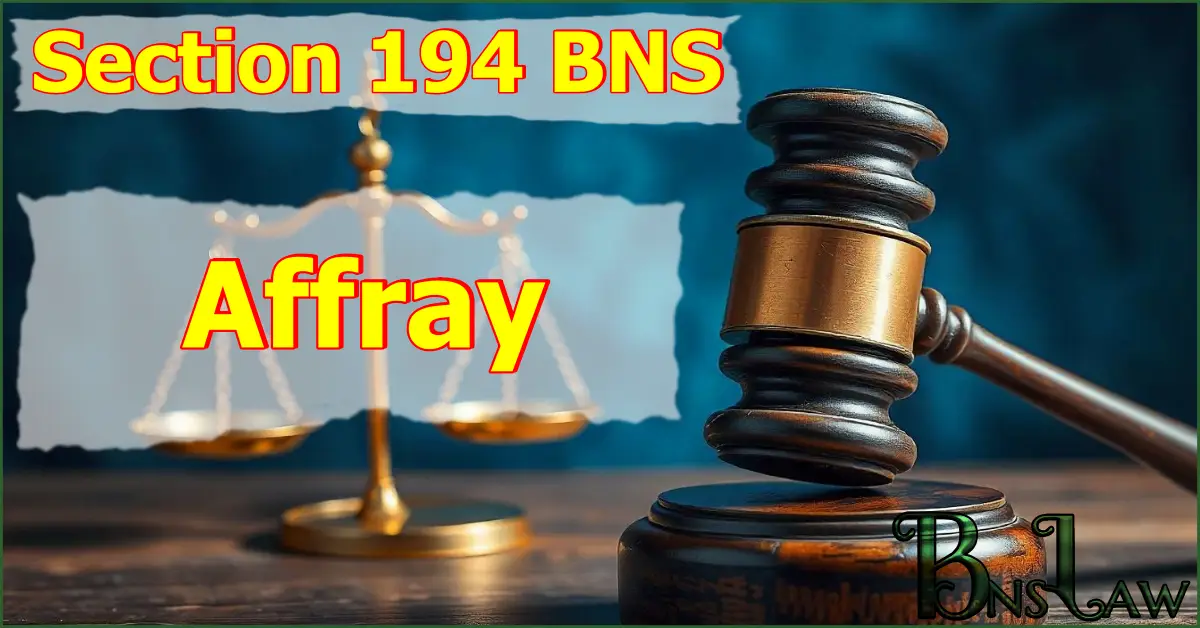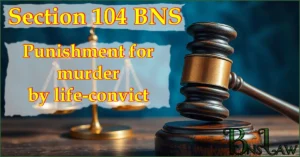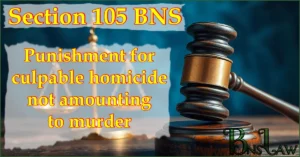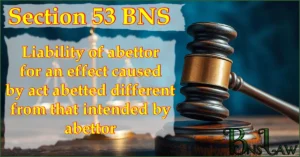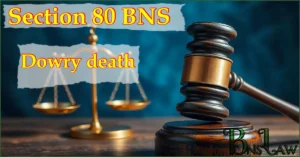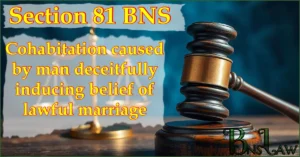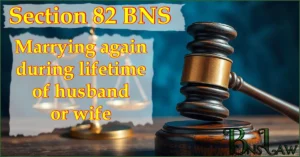Section 194 BNS
194(1) BNS
When two or more persons, by fighting in a public place, disturb the public peace, they are said to commit an affray.
194(2) BNS
Whoever commits an affray, shall be punished with imprisonment of either description for a term which may extend to one month, or with fine which may extend to one thousand rupees, or with both.
READ OTHER SECTIONS OF CHAPTER XI — OF OFFENCES AGAINST THE PUBLIC TRANQUILLITY
FAQs of BNS Section 194
-
194 BNS punishment and fine
Punishment and fine under Section 194(2) of the BNS: Imprisonment for one month, or fine of 1,000 rupees, or both.
-
194 BNS cognizable or not
The offence under Section 194 of the BNS is cognizable.
-
194 BNS bailable or not
The offence under Section 194 of the BNS is bailable.
-
194 BNS trial court
Offence specified in Section 194 of the BNS is triable by Any Magistrate.
Important Points
- Cognizable Offences: These are offences where a police officer can arrest a person without a warrant.
- Non-Cognizable Offences: These are offences where a police officer cannot arrest a person without a warrant.
- Bailable Offences: These are offences where the accused can get bail from the police station itself. All bailable offences are listed in the First Schedule of the Bharatiya Nagarik Suraksha Sanhita (BNSS).
- Non-Bailable Offences: Offences in which bail is not granted directly from the police station but after hearing the case in the court, the judge decides when bail will be granted. All non-bailable offences are listed in the first schedule of the Bharatiya Nagarik Suraksha Sanhita (BNSS).
- In the above FAQ, “trial court” means the court that has jurisdiction to try the offence.
- In the above FAQ, the expression “Magistrate of the first class” and “Any Magistrate” does not include Executive Magistrates.
Read other Sections of the BNS
Reference Link: New Criminal Laws (BNS), Ministry of Home Affairs

